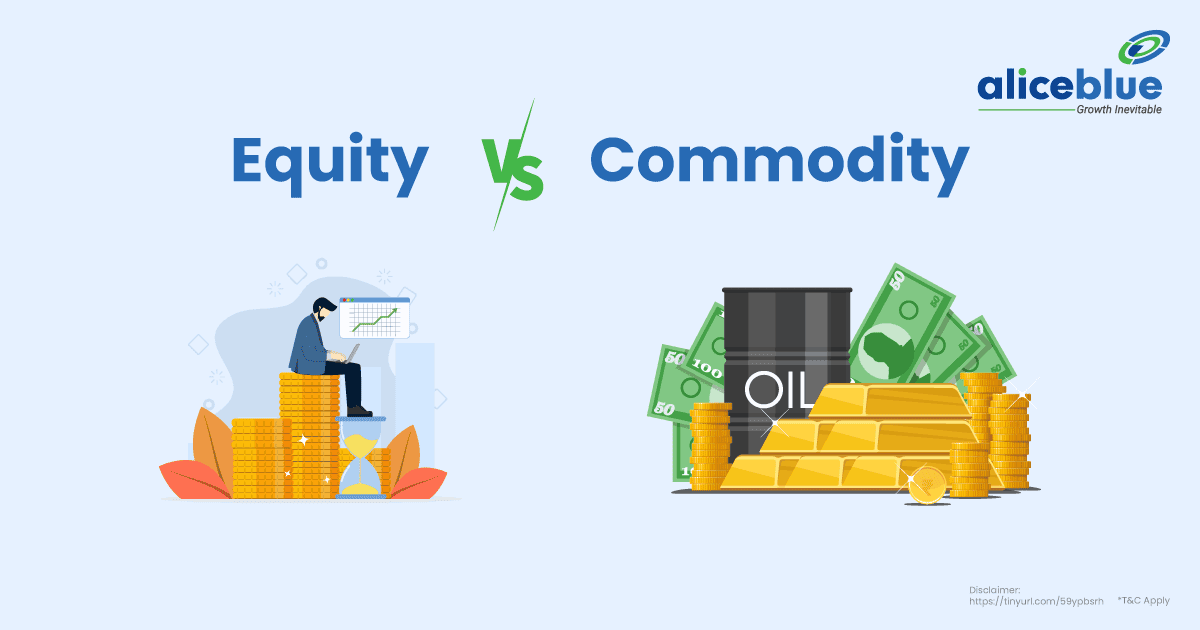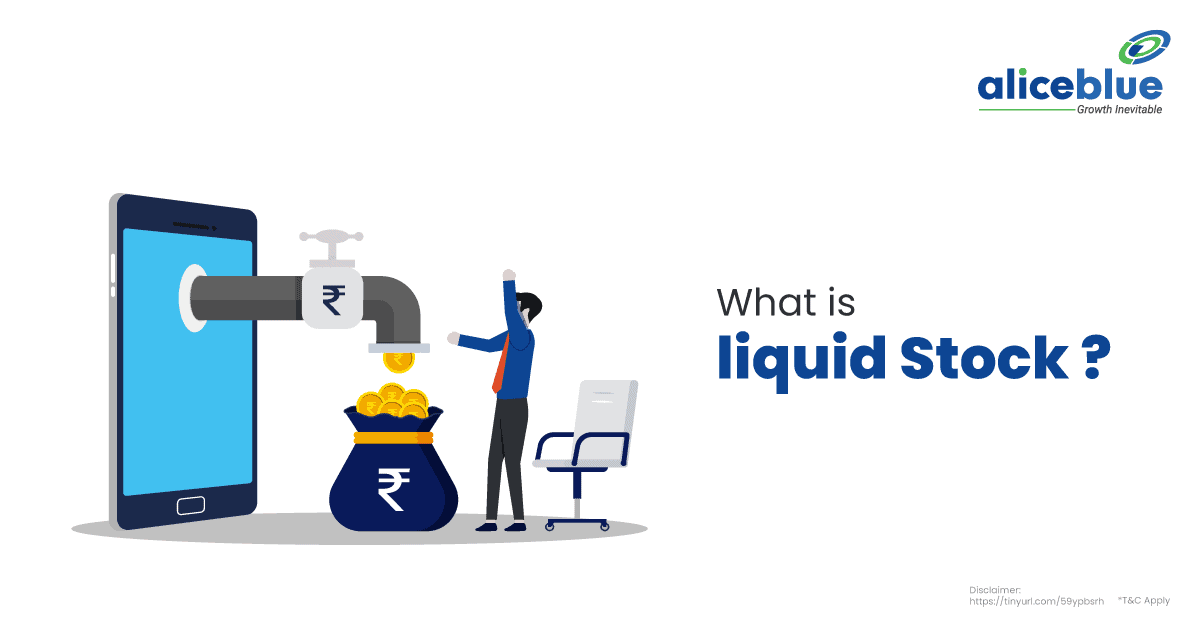The main difference between equity and commodity trading is that equities involve buying shares in companies, reflecting ownership and potential profit from dividends and stock appreciation, while commodities trading involves raw materials like gold, oil, and agricultural products, focusing on physical goods’ market supply and demand.
Content Id:
- Commodity Market Meaning
- Equity Market Meaning
- Difference Between Equity And Commodity
- Commodity Vs Equity – Quick Summary
- Difference Between Commodity And Equity- FAQs
Commodity Market Meaning
The commodity market is a financial marketplace where participants trade in primary or raw products. It includes agricultural products, metals, and energy goods. Traders in this market speculate on price movements or hedge against price volatility, driving global trade and economic activity.
The commodity market is primarily focused on trading raw materials and primary products. These commodities are divided into categories like agriculture (corn, soybeans), energy (oil, natural gas), and metals (gold, silver). This market facilitates the buying, selling, and trading of these physical goods.
In this market, traders engage in futures contracts or futures options to hedge against price fluctuations or to speculate on price changes. These contracts are agreements to buy or sell a commodity at a predetermined price and date, influencing global pricing and market stability.
For example, in the Indian commodity market, a trader might buy a futures contract for crude oil at a specified price, with the expectation to sell it later at a higher price to earn profit.

Equity Market Meaning
The equity market, also known as the stock market, is where shares of publicly traded companies are issued, bought, and sold. It provides a platform for companies to raise capital and for investors to acquire ownership stakes and potentially earn profits.
In the equity market, companies list shares on stock exchanges, offering a portion of their ownership to the public. Investors buy these shares, hoping the company’s value will increase, leading to potential profits through price appreciation.
This market plays a crucial role in the economy by facilitating capital raising for businesses and investment opportunities for individuals and institutions. It reflects the economic health of a sector or country, influenced by company performance, market trends, and investor sentiment.
For example, in the Indian equity market, a company like Reliance Industries Limited might issue shares. Investors can buy these shares, priced in rupees, hoping to profit from dividends and an increase in share value.
Difference Between Equity And Commodity
The main difference between equity and commodity markets is that equities involve buying shares of companies, offering ownership and profit potential, while commodities involve trading raw materials like oil, gold, and agricultural products, based on supply and demand dynamics.
| Aspect | Equity Market | Commodity Market |
| Assets Traded | Shares of companies. | Raw materials like oil, gold, and agricultural products. |
| Ownership | Provides ownership in a company. | Does not confer company ownership. |
| Profit Source | Earnings from dividends and stock value appreciation. | Profit comes from trading goods’ price fluctuations. |
| Influence | Affected by company performance, market trends. | Influenced by global supply-demand dynamics. |
| Investor Role | Investors become partial owners of the company. | Traders speculate on commodity prices. |
| Market Focus | Corporate financial health and growth. | Physical goods’ market availability and needs. |

Commodity Vs Equity – Quick Summary
- The commodity market facilitates trading in primary goods like agriculture, metals, and energy. Participants speculate on prices or hedge against fluctuations, impacting global trade and economic trends through this platform for raw product exchange.
- The equity market, or stock market, is a platform where public company shares are traded. It enables companies to raise funds and offers investors opportunities to buy ownership stakes, with potential for profit generation.
- The main difference between equity and commodity markets lies in their traded assets. Equities represent company shares, providing ownership and profit prospects, whereas commodities include raw materials such as oil and gold, traded based on supply-demand factors.
- Open free demat account with Alice Blue in 15 minutes today! Invest in Stocks, Mutual Funds, Bonds & IPOs for Free. Also, trade at just ₹ 15/order and save 33.33% brokerage on every order.
Difference Between Commodity And Equity- FAQs
What is difference in equity and commodity?
The main difference between equity and commodity markets is that equity trading involves buying company shares, offering ownership and dividends, while commodity trading deals with raw materials, focusing on price changes influenced by supply and demand.
What are examples of a commodity?
Commodities, ranging from physical goods like crude oil, gold, and silver to agricultural products such as wheat and corn, along with energy commodities like natural gas, are actively traded on various commodity exchanges.
What is an example of an equity?
An example of an equity is a share in a publicly-traded company like Apple Inc. or Reliance Industries. Owning this share represents a fraction of ownership in the company and potential for dividend income.
What is the meaning of equity in stock market?
In the stock market, equity represents ownership in a company through shares. Investors buying these shares become part-owners of the company and can earn profits through dividends and share value appreciation.
What do you mean by commodity market?
The commodity market is a trading platform where raw materials like metals, energy, and agricultural products are bought and sold. It operates through futures contracts and spot trading, influenced by global supply and demand.
Is NSE a commodity exchange?
Yes, the National Stock Exchange of India (NSE) includes a commodity exchange segment. Launched in 2018, it allows trading in commodity derivatives, including futures and options in various commodities like metals and agricultural products.
How can I invest in commodity market?
To invest in the commodity market, open a trading account with Alice Blue. You can invest through futures contracts, exchange-traded funds (ETFs), or stocks of companies involved in commodities. Research and risk assessment are crucial.






